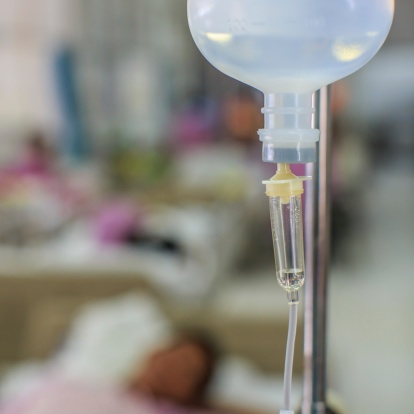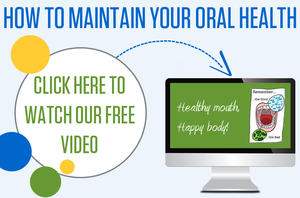By Kate Ranta on Nov 24, 2014 @ 04:14 PM
Chemotherapy can be a lifeline. But that lifeline can also be accompanied by a host of unpleasant and uncomfortable symptoms—some of which may create their own health issues.
One of the most common and problematic sites for chemotherapeutic side effects is your mouth, a sensitive area. Let’s take a closer look at the effects of chemotherapy and the mouth, and tips for oral health during chemotherapy.
Chemotherapy’s Effects on the Mouth
Chemotherapy is indeed a lifeline by offering you a chance at a healthier life. Unfortunately, those who undergo many types of chemo treatments experience a range of treatment-related effects that impact their mouth. Everything from eating and talking to swallowing can be affected, depending on the treatment and your response.
1. Chemotherapy treatments may lower your blood count. Effects of low blood cell counts include:
- Reduced blood flow that can cause healthy bone to die off
- A low blood platelet count that can increase bruising or bleeding in the mouth
2. Treatment-related discomfort may heighten your general sensitivity, resulting in gum and/or tooth pain.
3. Some treatments cause vomiting which can erode tooth enamel.
4. You could experience mouth sores, tongue swelling or impaired taste buds.
5. You can experience moderate to severe dry mouth.
Tips on Keeping your Mouth Healthy
The most important tip: visit your dentist at least one month in advance of treatments. That way, dentists can ensure that your mouth is healthy at the start of treatment. That gives you the chance to reduce the difficult effects of chemotherapy.
Here are a few more tips to reduce the unwelcome impacts of treatments:
General oral health, hygiene and moisture tips
1. You should maintain a strict oral hygiene regimen at home: brushing after each meal; using brushes with extra-soft bristles to avoid damaging weakened gums or tooth enamel; avoiding mouthwashes that include alcohol; and flossing very gently while avoiding areas that bleed easily. Replace toothbrushes after any infection and frequently in general during treatments. Also, visit the dental hygienist at least every three or four months to help maintain strong oral health, especially during treatment periods.
2. Keep your mouth moist as well as clean in several ways. Drinking lots of water and sucking on ice chips can help. Sugar-free gum or sugar-free hard candies may help as well. For cases of severe dry mouth, a dentist can prescribe a saliva substitute.
3. Rinsing a few times a day with a solution of ¼ teaspoon each of baking soda and salt in a quart of warm water, followed by a plain water rinse, helps heal oral cavity tissue.
4. If you wear dentures, you should request a consultation with your dentist to ensure that the fit is good to avoid further gum irritation during treatments.
Eating tips
1. Eating healthy food is critically important during treatments. You should choose foods that are nutritious, especially if appetite and ability to eat are impaired.
2. You might do better avoiding foods that cause any discomfort. That may include spicy foods, foods with a high acidity level, and very hard or crunchy foods. Easier: soft, bland foods.
3. Chew slowly with lots of sips of water. If swallowing still is difficult, try to mix foods with liquids.
4. In keeping with a greater need for oral hygiene, you should avoid cavity-producing foods or drinks with lots of sugar.
5. Avoid alcohol, tobacco and toothpicks during treatments.
It’s so important that you stay on track with your treatments and eat well to stay as strong as possible. To meet those goals, keeping the mouth as healthy as possible during treatments is vital.
Consulting with your dentist ahead of treatments and staying on a strong oral hygiene regimen can reduce the effects of chemotherapy on your mouth.





comments